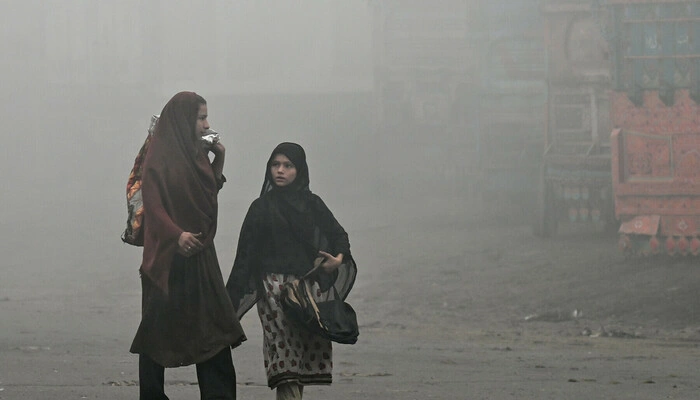
Air pollution is not just an environmental issue; it’s a crisis impacting human health in alarming ways. Among its many consequences, pollution and fertility have become a growing concern, particularly for women. As air quality continues to decline, the intersection between toxic pollutants and reproductive health reveals a grim reality that demands immediate attention.
Pollution’s Impact on Reproductive Health
In Pakistan, cities like Lahore face unprecedented levels of hazardous air pollution. Lahore consistently ranks among the world’s most polluted cities, with its toxic smog triggering widespread respiratory and cardiovascular illnesses. However, the lesser-known consequence of this crisis is its effect on women’s fertility.
Research shows that exposure to fine particulate matter (PM2.5) reduces ovarian reserves, disrupts hormone regulation, and lowers pregnancy rates. Studies published by institutions like Environmental Science and Technology and the National Library of Medicine highlight how air pollution affects reproductive health in both women and men.
Understanding the Fertility Connection
Experts link air pollution to oxidative stress and hormonal imbalances that negatively impact the reproductive system. Fertility expert Dr. Zeryab Setna explains that oxidative stress disrupts cellular health, harming ovarian reserves and sperm quality in men. He notes that while a direct link between specific infertility cases and pollution is still being researched, the overall impact is undeniable.
Supporting this view, Lahore-based gynecologist Dr. Nudrat Sohail points to endocrine-disrupting chemicals (EDCs) found in pollutants. These chemicals mimic hormones, exacerbate inflammation, and impair reproductive pathways, leading to irregular menstrual cycles and lower fertility.
Read: Punjab Tackles Smog Crisis with Joint China Collaboration
Broader Repercussions for Women
The crisis isn’t confined to urban areas. Women in rural regions face added challenges due to environmental exposures. During crop-cutting seasons, they inhale dust and agricultural pollutants. Additionally, many use wood as cooking fuel, exposing themselves to harmful smoke. This combination of environmental and household factors significantly increases their risk of reproductive and respiratory health issues.
Farhana Tabassum, a researcher at the Institute for Global Health and Development (IGHD), warns that climate change amplifies these risks. She emphasizes that without immediate action, women’s reproductive health will continue to decline, leading to higher infertility rates and further straining Pakistan’s already overburdened healthcare system.
Pollution’s Mental Health Effects
The effects of air pollution extend beyond physical health. Clinical psychologist Rabia Usman highlights its role in exacerbating stress and mental health issues. High stress levels in women, often caused by poor air quality, trigger hormonal imbalances and conditions like PCOS and PCOD. For pregnant women, this stress increases the risk of miscarriage and complications during pregnancy.
Punjab’s Efforts to Combat Pollution
To address the crisis, the Punjab government has launched initiatives like mandatory vehicle inspections, targeting industrial polluters, and promoting eco-friendly brick kiln practices. The Climate Resilient Punjab Vision Action Plan 2024 outlines a roadmap for green development, investments, and education. However, questions remain about the effectiveness of these measures amid weak public awareness and enforcement challenges.
A Call for Action
The link between pollution and fertility highlights the urgency of addressing air pollution as a public health priority. Beyond reducing smog, these efforts are critical to safeguarding women’s health and ensuring the well-being of future generations. This is not just an environmental fight—it’s a battle for survival.
Follow Day News on Google News, Instagram, YouTube, Facebook, Whats App, and TikTok for latest updates












